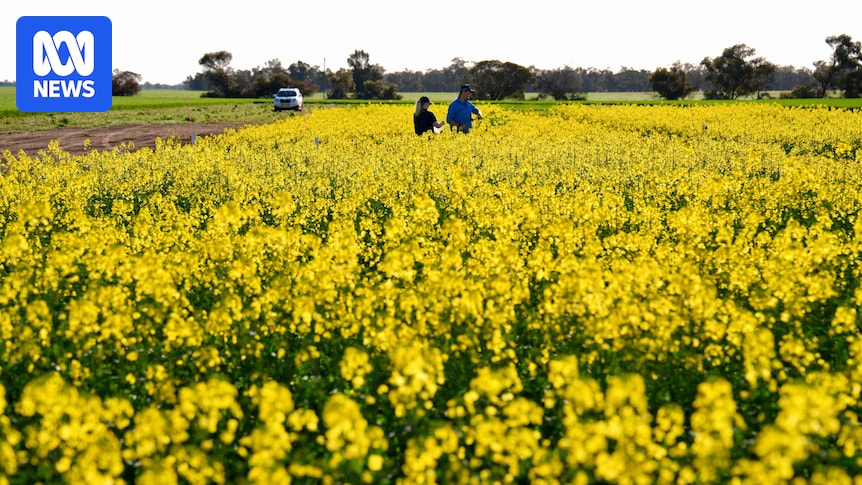Key Takeaways
- Cairns startup Rainstick combines Indigenous knowledge and modern science to enhance seed germination using electrical fields.
- Field trials on canola crops in Victoria aim to address low establishment rates costing the industry more than $100 million annually.
- The technology is non-genetic and focuses on improving crop strength through bio-electrical signals without altering plant DNA.
Innovative Seed Treatment Technology
Rainstick, a biotech startup from Cairns, Australia, is merging traditional Indigenous wisdom with contemporary science to optimize plant and fungi growth. Their unique method employs electrical fields to enhance seed treatments, inspired by the Maiawali people’s ancestral practice of “rainmaking” using a tool called a chuggera, or lightning stick.
Currently, Rainstick is collaborating with Riverine Plains, a farming group in Victoria, to test its seed treatment on canola crops. The CEO, Pip Grant, highlights that low crop establishment rates significantly impact Australian farmers, costing the canola industry over $100 million each year. Initial assessments of the trial indicate promising results, with treated canola plants showing notable improvements over untreated controls.
The technology is designed to integrate seamlessly into existing farming processes, requiring no changes from producers. Co-founders Darryl Lyons and Mic Black emphasize that their focus is on scaling this innovative approach globally. Black explains that the method mimics conditions found in thunderstorms, applying an electric field to seeds before shipment to farmers.
The scientific basis for the technology involves careful calibration of frequency, waveform, and treatment duration, rather than applying brute force. Collaborations with researchers from James Cook University and the University of Queensland are underway to refine the process and assess its biological impacts. Early research indicates changes in key molecules and enhanced leaf mass in treated plants.
Importantly, Rainstick’s innovations are not rooted in genetic modification. Instead, the bio-electrical signals influence gene activity without altering the plants’ DNA structure. This technology aims to provide seedlings with stronger starts, potentially boosting their resilience throughout their growth.
Beyond conventional agriculture, the applications of Rainstick’s technology are envisioned to extend to reforestation projects, helping to address climate change. Trials are ongoing with native species known for poor establishment rates, demonstrating the potential breadth of this technology.
For Lyons, a member of the Maiawali community, this effort represents not just a business venture but a reconnection with his heritage. He believes that traditional knowledge can play a vital role in developing scientific solutions for modern challenges. The team plans to continue in-field trials with farmers and scientists, striving to establish effective pricing to ensure farmers see a return on their investment in this innovative technology.
The content above is a summary. For more details, see the source article.















